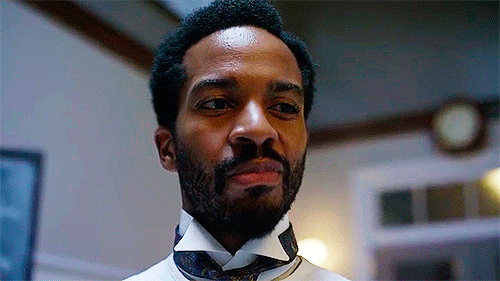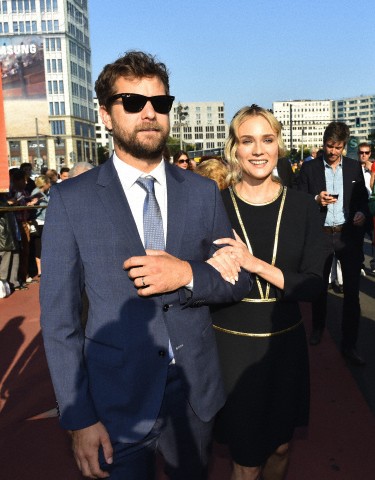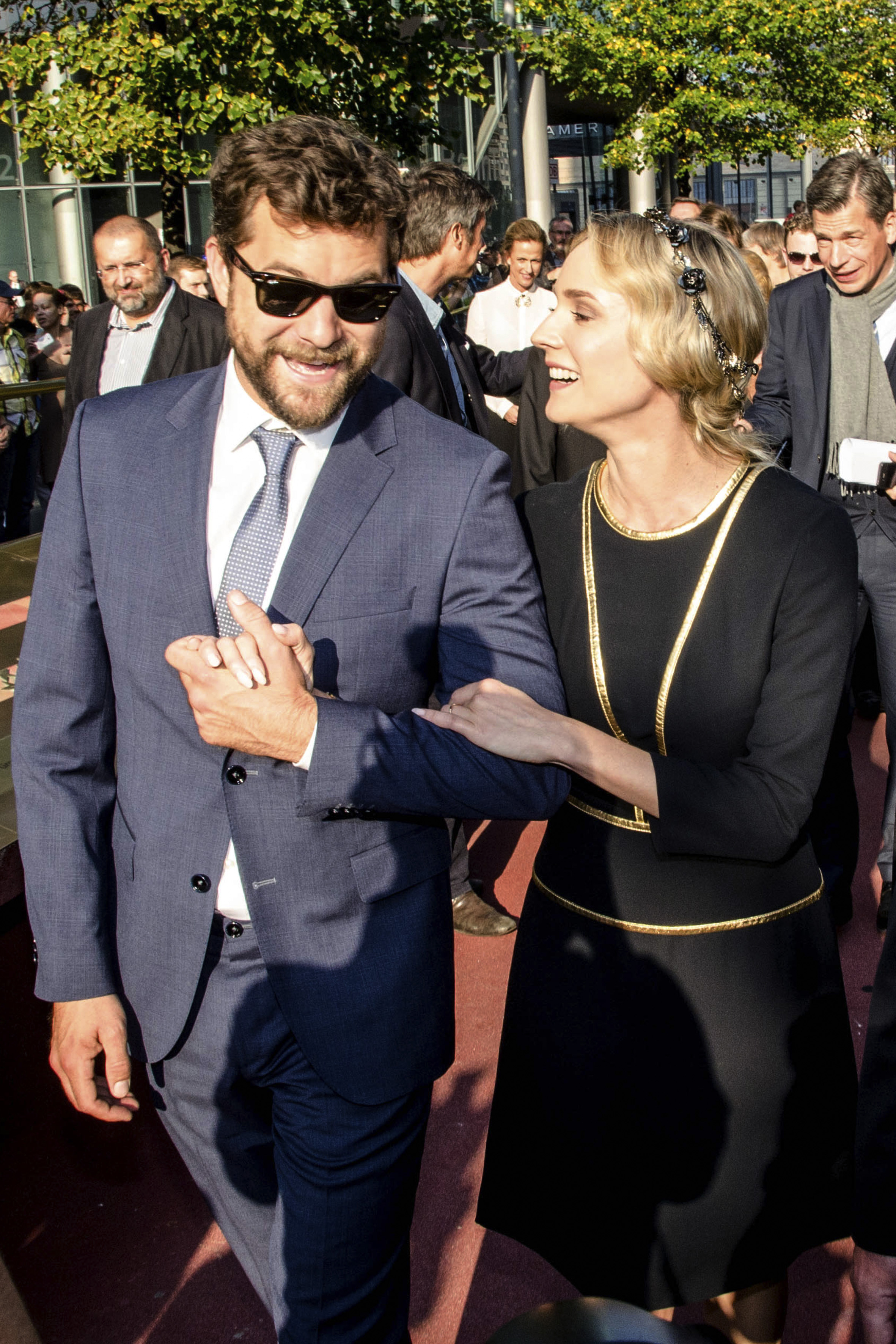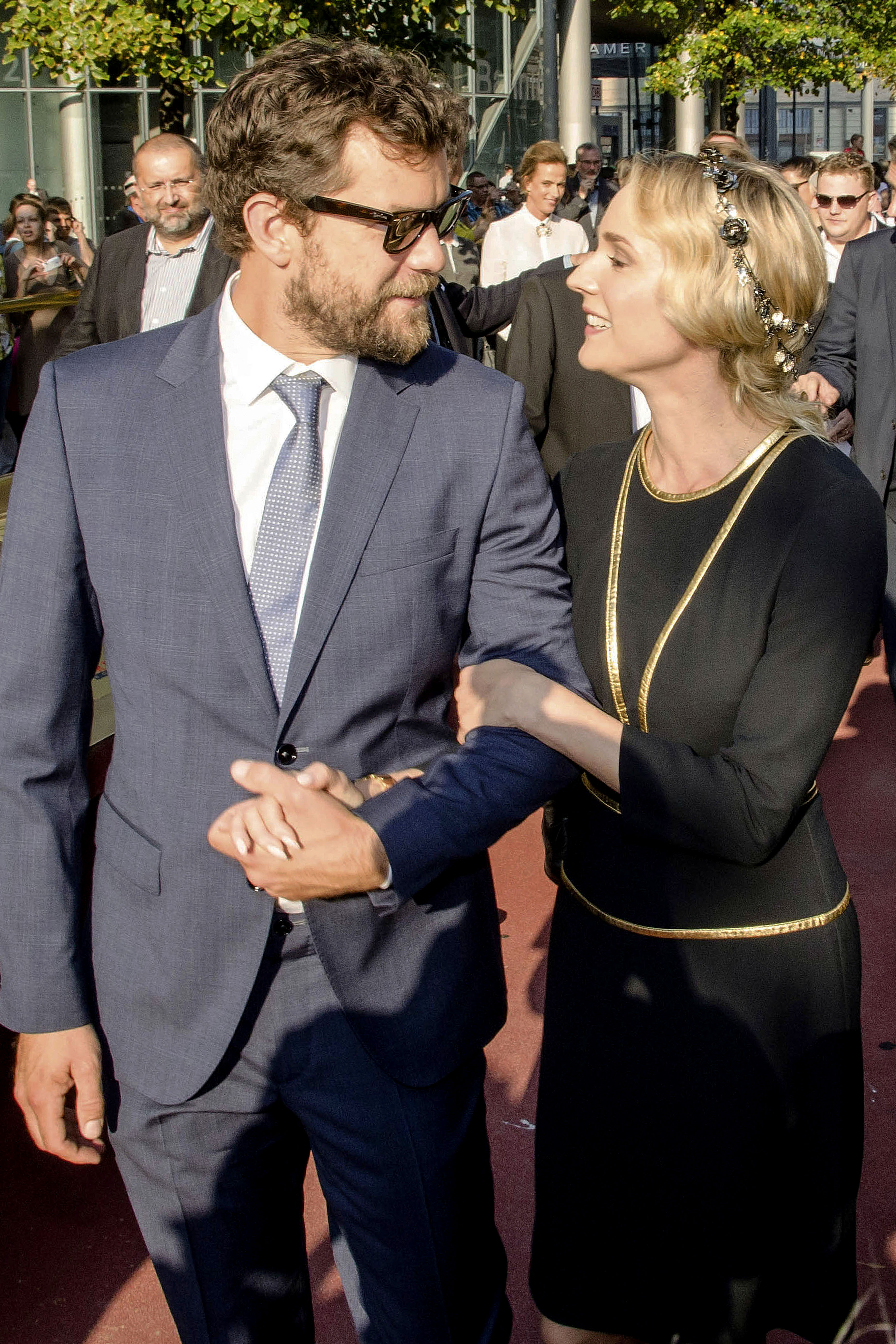Andre Holland on ‘The Knick’By FRED TOPEL![Hosted by imgur.com]() CraveOnline: John and Mark said Algernon was not based on the story Flowers for Algernon but did you think of that when you played the character?
CraveOnline: John and Mark said Algernon was not based on the story Flowers for Algernon but did you think of that when you played the character?
Andre Holland: You know, actually the thing that came to mind for me was Algernon in Oscar Wilde’s play. That’s the only other time I heard that name, but then I thought about Flowers for Algernon. I don’t know how they came up with the name but I don’t think they were trying to focus on anywhere in particular.
It seemed like by episode two, Algernon became very patient with discrimination.Well, I don’t think he becomes patient with it, but I think he understands how big the task is. I think he understands this is not something that’s going to be solved in a day, so he starts finding subversive ways to get around it.
Does that translate into his bedside manner, where he’s better able to handle perhaps hostile patients?That’s a good question. I don’t think so. I think that he’s a patient person by nature and I think he actually has good bedside manner, which I don’t think that Thackery does. Throughout the whole thing, it’s always a challenge because the patients, both black and white, are shocked at the fact that he’s actually a surgeon and it’s the first time for them seeing a black surgeon. I think they’re all a little bit scared of it. But, I think after dealing with the number of patients who are like that, he kind of begins to understand going into it that okay, they’re going to be a little freaked out. Maybe in episode six or seven he starts to say to patients, “Don’t be alarmed. I’m going to touch you.” Anyway, I think it just becomes a part of his life.
What sort of interesting surgical cases does Algernon have?Oh man, he does a lot. He does a hernia. He operates in a hernia. He works on Ida Harris, the woman with the swollen arm.
She went to the other hospital. So she comes back.I don’t want to spoil it for you, man.
No, I can imagine how we’d see her again.Yeah, there’s a number of things. He also works in The Knick as well assisting with some things. There are some heart procedures that happen. There’s an eye. There’s all kinds of things, tons of different surgical procedures but he’s pretty proficient at all of them.
Is Thackery in some ways right that the medical field is not the right place to talk about social progress and integration? That by the time things get as tense as they are in a hospital, that might not be the ideal place for social progress? It’s complicated.From his point of view I can understand, because he has a vested interest in the success of the hospital and the hospital’s already struggling financially, so I can understand his point of view. But at the same time, I think that, like Dr. King says, if not now, when? If you wait for an ideal time to make a change, to deal with issues, then I don’t know if that time will ever come.
I was thinking more that people who are dying just aren’t as open minded as they might be in good health.I see what you mean. Yeah, sure. If it was a case of there’s a patient who needs help, we don’t want to try some experiment on this person. We want to actually save their lives, but from Algernon’s point of view, he actually is one of the finest surgeons in the world. It would actually make sense to have him help.
It looks so convincing on screen. How realistic is the makeup of the surgery scenes?Very realistic. I mean, those guys, there were moments when we all got a little squeamish. When the blood starts flowing and you see the organs that look and feel so real, it’s pretty scary. When you touch the bowel, it feels like the real deal.
How does Algernon’s relationship with Thackery progress. Is it always confrontational? Do they have to form an uneasy alliance?Again, I don’t want to give too much away, but I will say the way it starts, it starts very rough. It gets a lot worse before it gets any better, but it does develop. Even where it’s left at the end of the season, it still has a lot more ground to cover. If we’re fortunate enough to do a season two, I think that relationship is going to be one of the key ones.
I think it’s key now. If season two is 1901, how different will things be for black doctors a year later?I don’t know. I think New York at that time was changing at such a rapid pace, fast forwarding even a year, the city would be different than it was in 1900. In terms of the black patients, I think that Algernon really is breaking ground in New York City as a black doctor. He’s beginning to get some notoriety and some fame as being this black doctor who people can come to for help. I’m not sure where they’re going to go with that storyline, but I imagine that he’s going to be the guy to see. Especially for African-American patients who need help because I don’t think the hospitals in the city are going to all open their doors and go, “Okay, come on in, guys. We’re here to treat everybody.” He’s going to become more important.
With segregation, Thackery’s equipment is already so bad and faulty. Does Algernon get stuck with even worse equipment?He does. Yeah, he goes down to the basement and scavenges and gets as much old stuff together as he can, modifies some things. Every once in a while he’ll borrow some things from the hospital upstairs, but he just makes it work.
Are any of his surgeries compromised by that?There’s one that gets compromised, not because of the equipment but because it’s difficult for him to offer continued care. Because he has a very small space he’s working in, there’s only room really for one patient so he doesn’t have time to let people sit there and recover for the time that they need to. So he has to trust that people will follow his directions and take care of themselves, but he doesn’t realize that these people also have to go to work, they have to make a living for themselves. So sometimes things get a little tricky in that way, but not because of the equipment. Just because of the difficulty of the whole situation.
Complete interview at first source link.Eve Hewson Talks THE KNICK, the Gory Surgery Scenes, Steven Soderbergh, and Her Love of E.T.By CHRISTINA RADISH![Hosted by imgur.com]() Had you been looking for a project where you could explore a character more long-term?
Had you been looking for a project where you could explore a character more long-term?
HEWSON: It’s funny because when I first met with Carmen [Cuba, casting director], she said, “Have you ever thought about doing TV?” And I was like, “No, not really, but I’d audition for TV.” And she said, “That’s where the roles are for women now. That’s where you can go and get a really great part.” Especially for people who are unknown, it’s easier to get a TV show because you don’t have to put a certain amount of people in movie theaters for a box office weekend. It’s really difficult to get a great lead role in some big film, if nobody knows you. So, she said, “You should go do TV. That’s where you can find a great part, and people can learn about you from that.” I don’t even think she knew what was going to come. I had met her in February, and then I think Steven got the script in May and they started casting in June. It was really just a funny coincidence.
What was it like to have Steven Soderbergh there, directing every episode?
HEWSON: It’s amazing because Steven is so focused and so aware of what he wants. He is so in control. He’s the director, the editor and the cinematographer, so he’s thought about absolutely everything, by the time you get onto the set. We also had to move so fast. We did nine pages a day, and we basically did one or two takes. That would have been really scary for me, having not worked on a lot before, with anybody else. But knowing that he trusted me, and if we needed to get another take, we would, and if he liked it, we would move on, gives you a confidence with it. He’s so involved. He’s looking into the camera that’s pointed at you. He’s not off in video village, eating nuts. He’s there, he’s in your face, he’s watching you, and he’s got your back. That was really great. And it was so nice to be able to have a working relationship with him and get to know him. We had that for five months. I loved that part of it. We’re lucky that he’s actually really nice and fun, and everyone wants to hang out with him. He really enjoys what he’s doing. He’s taking a lot of risks, and he’s not scared of failing. I loved working with him.
What was it about this story and character that stood out for you and made you want to be a part of telling this story?
HEWSON: Everything about it stood out. The script was so uncomfortable and really gruesome and off-putting, and I loved that. I love that about film, and that you can make someone squirm in their seat. I was squirming when I was reading it, but I had an adrenaline rush because I feel like that’s what it’s all about. Of course, we’re so lucky to be in a time where that’s not our reality anymore. I just thought it was very interesting to go back to that time now, and to look at all of these issues that are still relevant today, but just in such a different way, and to see how we approach them and try to overcome them. Yeah, we’ve come a long way with medicine and women’s health in the Western world, but in a lot of parts of the rest of the world, that’s still a huge issue. I think it’s really important that people can look at this show and be offended by it. Hopefully, then people will understand that this is still very much a problem we need to solve in other parts of the world. At least we have antibiotics.
What can you say about who Lucy Elkins and how she came to be a nurse?
HEWSON: It wasn’t a profession that was respected, in any way, but at that point, they were trying to make it respectable. The origin of nursing started out with prostitutes, who would go care for people in jail. That was back when nobody wanted to go to the hospital because it was basically a place that you went to die. It started progressing with the visiting nurses in the South. The women started wearing these outfits to make it look like they were more sophisticated and so that they could be more respected. They started recruiting women from good education backgrounds because they wanted to make it a more respected profession. Back then though, you had a few months of training, and then you were just thrown into it. So, anyone could really be a nurse, and that’s the case with Lucy. She moved to New York to be a nurse because she wanted the excitement of living in a city, but she doesn’t know anything, and it’s not really her fault. She’s just thrown into the deep end. Underneath it all, she’s looking for that excitement. She’s not just a scared girl. She’s there and she’s put herself in this situation for a reason.
There’s an interesting power play between Lucy and Dr. Thackery, who seems to like to use his position of power to get people to do what he wants them to.
HEWSON: And she’s definitely the kind of person that wants to be told what to do because she gets off on that. It is an interesting heightened situation. I couldn’t imagine working in a hospital where there’s just death, everywhere. But for a lot of women, it was their only option. They couldn’t get other jobs. Even though Lucy is pretty freaked out and scared shitless in the first episode, she did move from West Virginia to New York. She is a lot bolder than you would expect. I really liked playing someone that had that excitement underneath her.
As she finds her footing, does she get stronger and more self-assured?
HEWSON: Yeah, she does. She gets herself into a lot of trouble, but she wants to get herself into a lot of trouble. That’s the whole thing.
What can you say about how the relationship between Lucy and Dr. Thackery evolves?
HEWSON: In the first episode, he embarrasses and humiliates her, in front of everybody, and that set the tone for a very complicated relationship. But then, you see him be very vulnerable, and she is the one who has to look after him. I really enjoy that power play that they have between them. You definitely see that go up and down, throughout the season. The way that she communicates with people is in her own funny little way, which I enjoy playing.
What’s the craziest surgery scene you had to shoot?
HEWSON: The placenta praevia cases were the craziest because they had the most blood and they were the most invasive, in terms of cutting up a pregnant woman, reaching inside her stomach and taking out a human. There was some gross stuff, like the bowel repair. That was just nasty because they really did make it look like his intestines were rotting. It was green and full of puss, and it was just vile. We did a heart surgery. In Episode 3, we sewed someone’s arm to their face. We did a skin graft where we had to take a piece of skin from his body and attach it, so that it would grow. There was a lot of really gory, gross stuff. Every day, we would be like, “Oh, my god, this is a big day! We’re operating on this person.” There was no dull moment, at all.
Is it hard not to be grossed out during those scenes?
HEWSON: There have been a few moments where Steven had to be like, “Just don’t look at it, Eve!” And I was like, “I’m gonna get sick!” Most of the time, I was actually just really fascinated. I love make-up, and I love special effects make-up, so I was really excited to see how they were going to come up with these crazy prosthetics, and how they were going to get the blood and puss to ooze out, at the right time. The special effects guys were hiding around the corner with their remotes, and pumping stuff into tubes. It was really cool. It’s fascinating. That’s what I love about movies. You get to see the behind-the-scenes.
Complete interview at second source link.
And here is an adorable picture of Cara Seymour (Sister Harriet) that Chris Sullivan (Tom Cleary) posted on instagram:
Sources:1234Galinger's bb is gonna get meningitis and die all because her dumbass racist pos dad didn't wash his fucking hands. #calledit(sorta)

















































































































































